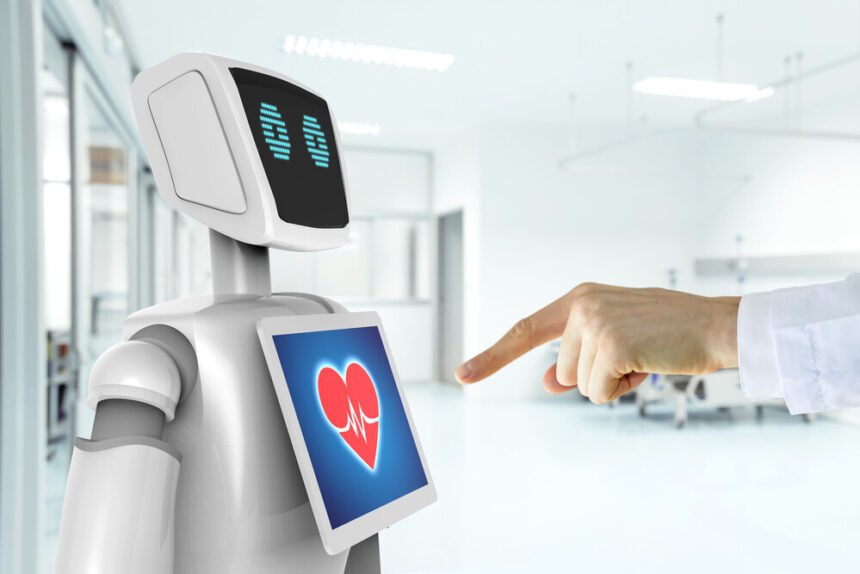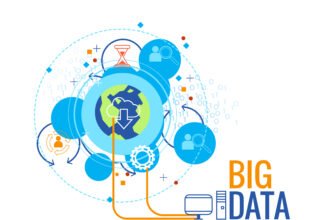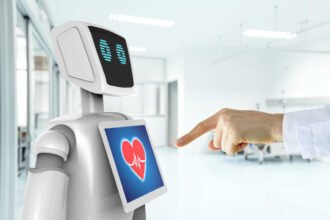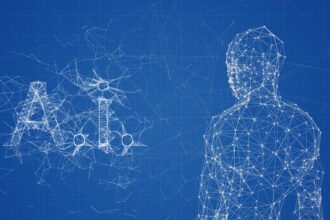We mentioned in previous articles that artificial intelligence is transforming healthcare at a rapid rate, bringing new levels of efficiency, accuracy, and personalization to patient treatment. From virtual health assistants to predictive analytics, smart technologies are turning healthcare into a more proactive and patient-centered model.
The global AI in healthcare market, is expected to grow to $164.16 billion by 2030, highlighting its growing significance in the future of healthcare. This is going to lead to huge opportuntiies in the industry.
This higher adoption is also reflected in how medical professionals are integrating AI into their daily practice. In 2024, the American Medical Association reports that about 66% of physicians reported that they were using AI in their practice—a sharp rise from just 38% in 2023.
““The AMA survey illustrates that physicians are increasingly intrigued by the assistive role of health AI and the potential of AI-enable tools to reduce administrative burdens, enhance diagnostic accuracy, and personalize treatments,” said AMA Immediate Past President Jesse M. Ehrenfeld, M.D., M.P.H. “But there remain unresolved physician concerns with the design of health AI and the potential of flawed AI-enabled tools to put privacy at risk, integrate poorly with EHR systems, offer incorrect conclusions or recommendations, and introduce new liability concerns. Increased oversight ranked as the top regulatory action needed to increase physician confidence and adoption of AI,” the AMA writes.
The technology assists with everything from diagnoses to paperwork, allowing physicians to spend more time with patients and less on paperwork. With developing AI, the patient experience will probably be revolutionized, making healthcare not only smarter but also more empathetic and effective. Many healthcare providers are even using AI for telehealth purposes.
AI technology is changing the way the world operates at a pace that is incredibly rapid. Whereas some emerging technologies remain isolated to one industry, others overlap, whereas the few of them transform the face of the global economy and societies as they exist. AI is one such technology.
Considering the potential malleability and efficacy of AI enhanced operations almost every major industry has begun some form of adoption. The healthcare industry, well known for powerful, driven innovations and research methods, is no stranger to change.
As the healthcare landscape evolves, the integration of AI and smart technologies is dramatically transforming the patient experience.
From diagnosis to treatment and follow-up, AI is increasingly becoming an indispensable companion for patients and healthcare professionals alike. Through enhanced diagnostic accuracy, facilitating individualized treatment, automating administrative burdens, providing remote monitoring, and involving patients with information, intelligent technologies are creating a more efficient and inclusive healthcare setting.
As the technology advances, it has the potential to make healthcare accessible, more efficient, and more patient-focusing, ultimately changing the way people think about and experience health and well-being.
Following are some of the ways in which smart, AI technologies are revolutionizing healthcare patient experiences.
Enhanced Diagnostic Accuracy
One of the most significant impacts of AI in healthcare is its ability to assist in diagnostics. Machine learning algorithms can analyze vast amounts of medical data, including imaging, lab results, and patient records, to provide support in diagnosing conditions that may otherwise go unnoticed.
For example, AI systems like IBM Watson have been utilized to analyze radiological images for signs of cancer and other conditions, outperforming human radiologists in some cases.
The use of AI tools not only reduces the chances of human error but also accelerates diagnostic processes. Quick and accurate diagnostics lay the foundation for timely treatments, leading to better health outcomes and, ultimately, an improved patient experience.
Personalized Treatment Plans
AI is also paving the way for personalized medicine. By analyzing genetic information, lifestyle factors, and environmental influences, AI can help healthcare providers tailor treatment plans to individual patients. Platforms that use predictive analytics are particularly helpful for chronic disease management.
For example, diabetes management apps analyze patient data and predict blood sugar levels, offering personalized dietary and treatment recommendations. By catering to the unique needs of each patient, healthcare providers can offer a more effective and engaging treatment experience that empowers patients and increases their satisfaction.
Streamlined Administrative Processes
Administrative bottlenecks often frustrate patients and healthcare providers alike. AI technologies can automate mundane administrative tasks such as scheduling, billing, and insurance verification, reducing waiting times and streamlining operations. Chatbots and virtual assistants are becoming commonplace in this regard, providing patients with instant answers to frequently asked questions and guiding them through the appointment process.
With fewer administrative hurdles, healthcare professionals can dedicate more time to patient care, leading to a more engaging and meaningful experience for patients who feel their needs are prioritized.
Remote Monitoring and Telehealth
The COVID-19 pandemic accelerated the adoption of telehealth, and AI has enhanced this sector by enabling remote patient monitoring. Wearable health devices equipped with AI can track vital signs, identify anomalies, and even predict potential health issues before they become critical. For instance, smartwatches now feature ECG monitors that alert users of irregular heartbeats, prompting early interventions.
Telehealth platforms powered by AI can analyze patient data during virtual consultations, offering practitioners insights that inform their clinical decisions in real time. This innovative approach not only enhances accessibility but also fosters a sense of security among patients, knowing they can receive care from the comfort of their homes.
Empowering Patients with Information
AI plays a crucial role in educating and empowering patients. Health apps powered by natural language processing can answer patients’ questions in real time, providing them with immediate access to medical information tailored to their specific conditions. This can help clarify complex medical terminology and procedures, allowing patients to make informed decisions about potential care.
Moreover, AI can track a patient’s health journey and provide reminders for medication, upcoming appointments, or necessary lifestyle changes. This constant support and engagement nurture a proactive approach to health management, fostering a collaborative relationship between patients and healthcare providers.











